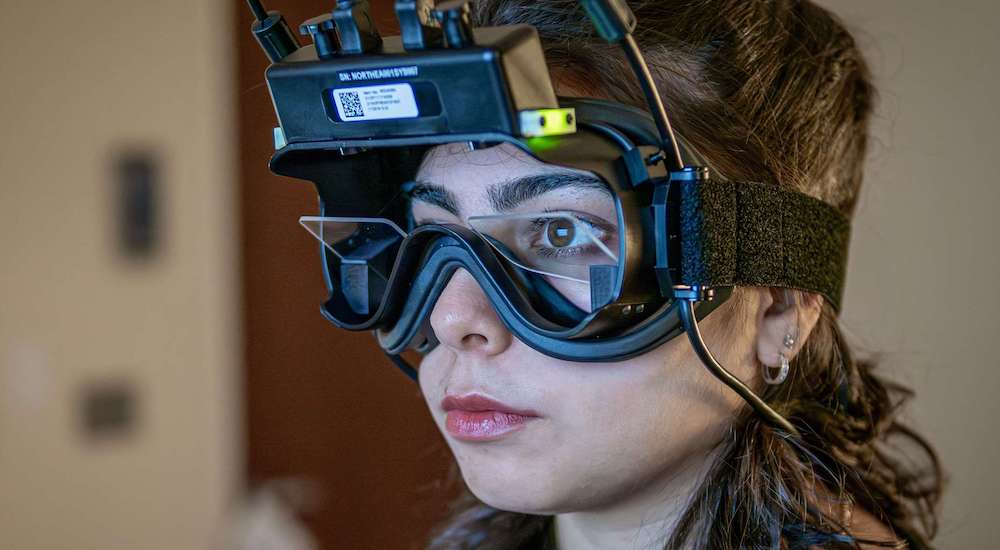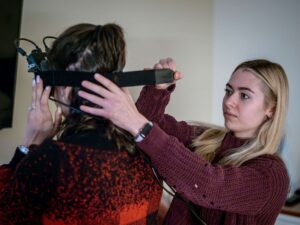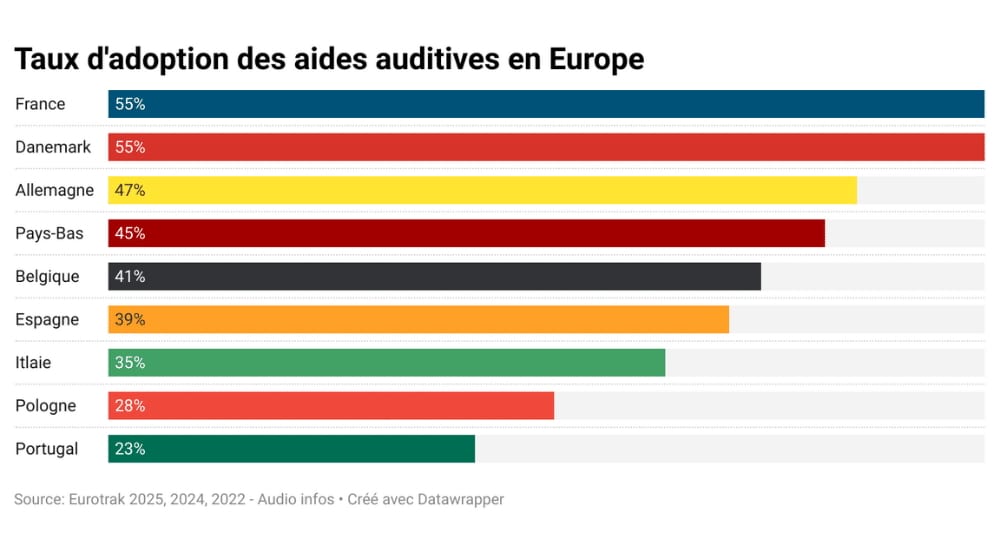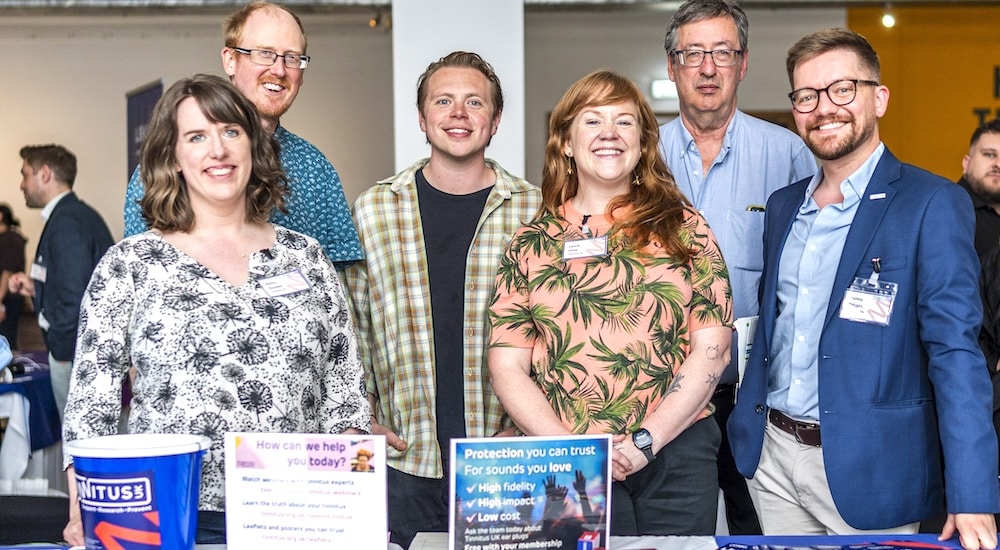$200k virtual reality system enabling cutting-edge balance research at US university
Having a Virtual Reality Balance System for research is a luxury that can deliver results of value to audiology and many other spheres.

Researchers and students at the Montclair State University Audiology Clinic, New Jersey, USA are using some kick-ass tech to get valuable insights into balance issues such as fall risk. Kick-ass?! Well, at least virtually, because the Bertec CDP Virtual Reality Balance System now available for research projects in the Audiology and Exercise Science departments is the only University-based system in the area.
In research into fall risk, for example, the equipment may indeed save a few literal kick-ass situations, certainly if data helps people avoid falls. The system measures centre mass, so researchers (see photo) can stand or have people stand on plates before a large screen depicting a variety of scenes that will provoke a balancing response. The degree to which subjects sway can be measured during different exercises.

© Mike Peters/Montclair State University Kristen Nortwich straps fellow Audiology student Natalie Niyazov into a virtual reality headset in order to test her balance.
These systems, which cost around $200k a throw, are used at four hospitals in the zone. The balance testing they enable can provide invaluable information to athletic trainers, physical therapists, occupational therapists, and other rehabilitative professionals. Balance and study of the vestibular system are, of course, a pivotal focus in audiology. Good information can be gathered for research into gait and balance disorders, risks for falling and reinjury, all helping diagnostics and treatment.

© Mike Peters/Montclair State University
Kristen Nortwich wears a harness to prevent her from falling as her balance is tested in various virtual scenarios.
Students using the system at Montclair quickly worked out that it does a better job at assessment – and in different ways – to available phone-based testing apps.
Some of the funding approved two years ago for the system came from the Audiology Clinic but, as the Clinic’s Director Faith Mogila points out on the Montclair University News site, “we would not have been able to purchase it without the provost funds”.
Source: Montclair State University Press Room. Photos (courtesy of Mike Peters/Montclair State University)


